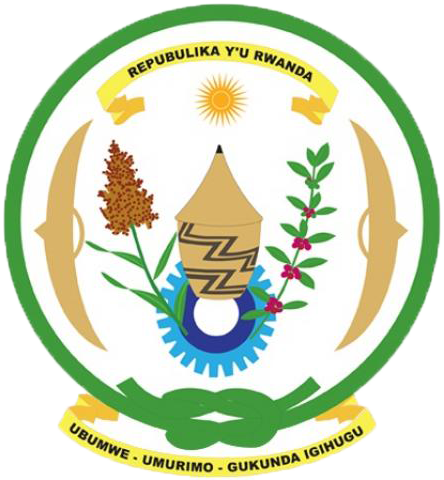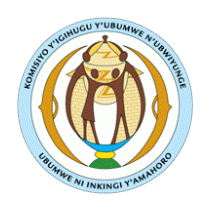NURC BACKGROUND
The National Unity and Reconciliation Commission was created in March 1999 by a parliamentary law to promote Unity and Reconciliation among Rwandans in the aftermath of the devastating 1994 genocide against Tutsis to mark a major milestone in changing, fundamentally, effects of bad governance based on discrimination and exclusion.
NURC has been a pivotal institution in the process of unity and reconciliation policy implementation, social trust and social cohesion towards the main goal achievement of building a united country.
FUNCTIONS OF THE NATIONAL UNITY AND RECONCILIATION COMMISSION
The National Unity and Reconciliation Commission was established in 1999. With reference to the article 178 of the Constitution of the Republic of Rwanda, and law No 35/2008 of 08th August, the Commission was assigned 8 responsibilities as follows:
§ To prepare and coordinate the national programs aimed at promoting national unity and reconciliation;
§ Establish and promote mechanisms for restoring and strengthening the Unity and Reconciliation of Rwandans;
§ To educate, sensitize and mobilize the population in areas of national unity and reconciliation;
§ To carry out research, organize debates, disseminate ideas and make publications on the promotion of peace, and the unity and reconciliation of Rwandans;
§ To propose measures and actions that can contribute to the eradication of divisionism among Rwandans and reinforce unity and reconciliation;
§ To denounce and fight actions, publications, and utterances that promote any kind of division and discrimination, intolerance and xenophobia;
§ To make an annual report and other reports that may be deemed necessary, on the level of attainment of national unity and reconciliation;
§ Monitor how public institutions, leaders and the population in general comply with the National Unity and reconciliation policy and principle;
NURC BACKGROUND
The National Unity and Reconciliation Commission was created in March 1999 by a parliamentary law to promote Unity and Reconciliation among Rwandans in the aftermath of the devastating 1994 genocide against Tutsis to mark a major milestone in changing, fundamentally, effects of bad governance based on discrimination and exclusion.
NURC has been a pivotal institution in the process of unity and reconciliation policy implementation, social trust and social cohesion towards the main goal achievement of building a united country.
FUNCTIONS OF THE NATIONAL UNITY AND RECONCILIATION COMMISSION
The National Unity and Reconciliation Commission was established in 1999. With reference to the article 178 of the Constitution of the Republic of Rwanda, and law No 35/2008 of 08th August, the Commission was assigned 8 responsibilities as follows:
§ To prepare and coordinate the national programs aimed at promoting national unity and reconciliation;
§ Establish and promote mechanisms for restoring and strengthening the Unity and Reconciliation of Rwandans;
§ To educate, sensitize and mobilize the population in areas of national unity and reconciliation;
§ To carry out research, organize debates, disseminate ideas and make publications on the promotion of peace, and the unity and reconciliation of Rwandans;
§ To propose measures and actions that can contribute to the eradication of divisionism among Rwandans and reinforce unity and reconciliation;
§ To denounce and fight actions, publications, and utterances that promote any kind of division and discrimination, intolerance and xenophobia;
§ To make an annual report and other reports that may be deemed necessary, on the level of attainment of national unity and reconciliation;
§ Monitor how public institutions, leaders and the population in general comply with the National Unity and reconciliation policy and principle;


